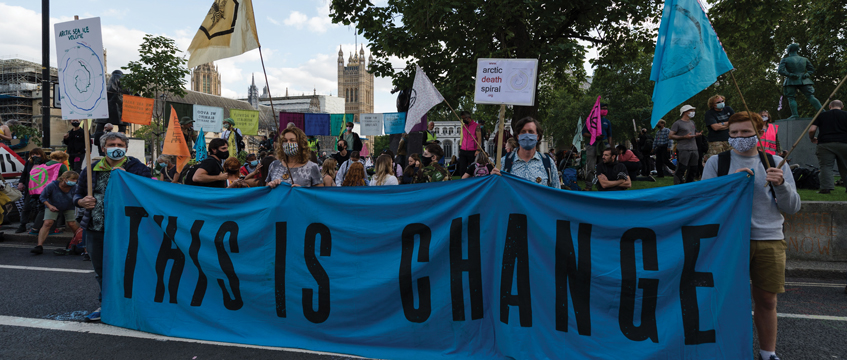Bridging the ESG will gap and skills gap
COMMENT: While net zero carbon, ESG, sustainability and social value are the current buzz words in real estate, most people will admit – privately at least – that they are lost on what these terms mean in reality.
Having attended EG’s ESG Breakfast Briefing last month, where the focus was on the skills gap within the sector, what strikes me is that no matter what training courses are laid on or what qualifications are gained, unless there’s an intrinsic desire to make a change in the way that the sector operates, ESG goals will fail.
Looking back at how this field of work has developed, it’s clear that most of the senior leaders in sustainability right now are the ones who had a personal interest in doing something different. While they might have been taught at university about climate change theories, it was down to their own imagination and drive for innovation to find a way to integrate this knowledge into the practical elements of real estate.
COMMENT: While net zero carbon, ESG, sustainability and social value are the current buzz words in real estate, most people will admit – privately at least – that they are lost on what these terms mean in reality.
Having attended EG’s ESG Breakfast Briefing last month, where the focus was on the skills gap within the sector, what strikes me is that no matter what training courses are laid on or what qualifications are gained, unless there’s an intrinsic desire to make a change in the way that the sector operates, ESG goals will fail.
Looking back at how this field of work has developed, it’s clear that most of the senior leaders in sustainability right now are the ones who had a personal interest in doing something different. While they might have been taught at university about climate change theories, it was down to their own imagination and drive for innovation to find a way to integrate this knowledge into the practical elements of real estate.
As we’ve seen in the past two years, there’s been an uptick in demand for advisers who really understand sustainability as it applies to real estate, and most organisations in the built environment now have a sustainability lead. There are wildly different levels of experience in these lead roles, driven by a general shortage of seasoned real estate sustainability experts. Organisations are finding themselves competing for talent and often must offer promotions earlier than usual to retain or recruit.
Many professionals have migrated from consultancy roles to in-house, often assuming greater responsibility for the strategic ESG direction of portfolios of assets. This mass movement has in some cases created a vacuum of skills and experience, meaning newly qualified entrants are having to find their way with a reduced level of oversight and guidance.
Upskilling organisations
As has been argued before, sustainability can no longer be a fringe topic which a few specialists within each real estate agency and advisory firm cover off. With legislative deadlines looming and increasing evidence of the impacts of climate change, there is no time to be complacent on this issue and everyone has an impact on the planet’s future.
The decisions each and every one of us make when advising clients has an impact on the environment and the global community. If we propose demolition and rebuilding on a prime location, that’s a whole lot of carbon being emitted, continuing to push the increasing temperature of the planet. Whereas if we choose retrofitting there are savings for the planet – but are there savings for your clients’ bottom line, and will the asset be investible in the long term?
How do we get to the point where everyone knows what they’re talking about and how to have a positive impact? One way to start is to upskill your whole organisation on the topics of ESG. However, a generic lecture about the difference between carbon neutral and net zero carbon or understanding BREEAM ratings is not going to have an impact. Instead, training must be tailored to the needs of the audience, providing solutions that match the interests of the particular specialism. Still, will that make a difference? Marginally, perhaps.
Individual responsibility
What really needs to take place is development that leads to genuine buy-in from the individual. If they believe they can truly make a difference then they will be motivated to search out the solutions, do the research, find out about the niche products that can make that extra difference to operational emissions, or reduce the embodied carbon wrapped up in their latest construction project.
The challenge for the sector is embedding sustainability into each and every service line and product that supports the real estate sector – from capital markets to agency to project management. These teams should be supported by an integrated set of technical advisers with the desire to create genuine change and innovation.
Learning and development teams have a role to play in this by upskilling the overall workforce as opposed to just those with ESG in their job title, truly embedding the ethos much like other initiatives around diversity and inclusion. However, it’s about more than skill – it’s about bridging that will gap, and finding the right triggers for each individual which will make them re-evaluate their drive, and do what’s right for the environment and society as a whole.
Robert Nunn is head of UK talent and development at Colliers
Image © Wiktor Szymanowicz/NurPhoto/Shutterstock











